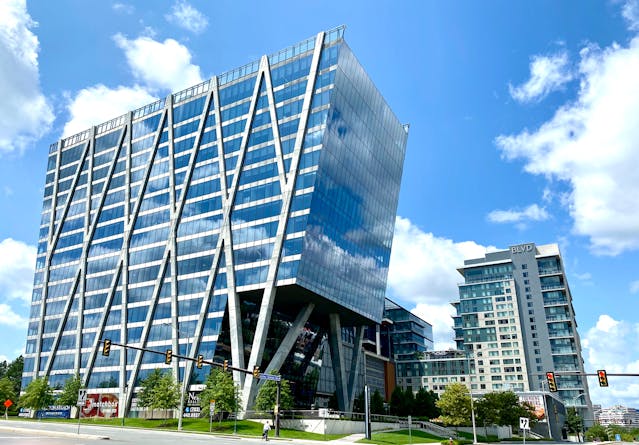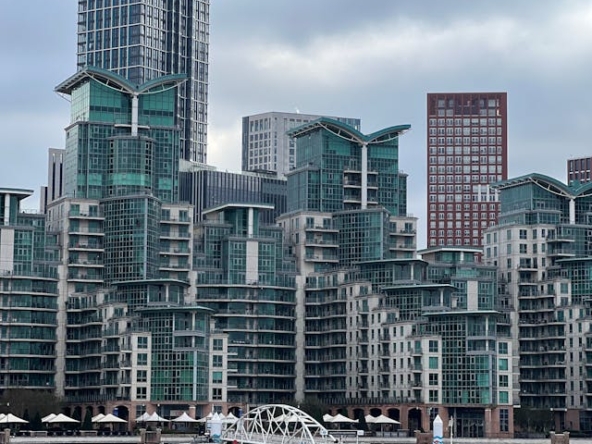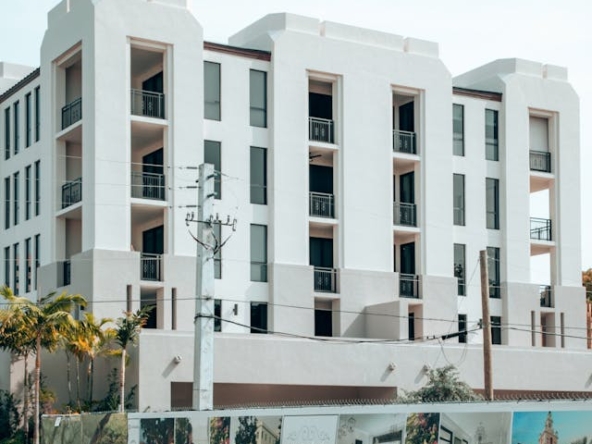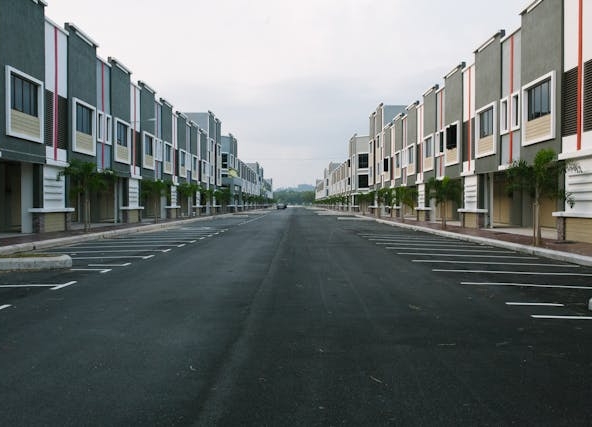Commercial property management is the oversight and administration of commercial real estate assets to ensure they remain profitable and well-maintained. In Winnipeg, this practice is essential for property owners looking to maximize their returns on investment while minimizing risks and operational challenges.
Key takeaways
- Commercial property management involves overseeing various types of properties, including office buildings, retail spaces, and industrial facilities
- Effective management can increase property value and tenant satisfaction
- Local market knowledge is crucial for success in Winnipeg’s commercial real estate sector
- Technology plays a significant role in modern property management practices
- Sustainability and energy efficiency are becoming increasingly important in commercial property management

The basics of commercial property management in Winnipeg
Commercial property management in Winnipeg involves a wide range of responsibilities aimed at maintaining and increasing the value of commercial real estate assets. Property managers in the city must have a deep understanding of the local market, including trends in rental rates, vacancy rates, and economic factors that can impact property values.
One of the primary goals of commercial property management is to ensure that properties remain occupied and generate consistent income for their owners. This involves finding and retaining tenants, negotiating leases, and addressing any issues that may arise during a tenant’s occupancy.
In Winnipeg, property managers must also be familiar with local regulations and zoning laws that can affect commercial properties. This knowledge is essential for ensuring compliance and avoiding potential legal issues that could negatively impact the property’s value or profitability.
Types of commercial properties managed in Winnipeg
Winnipeg’s commercial real estate market includes a diverse range of property types, each with its own unique management requirements. Some of the most common types of commercial properties managed in the city include:
Office buildings
Office buildings are a staple of Winnipeg’s commercial real estate landscape. Managing these properties involves maintaining common areas, ensuring proper security measures are in place, and addressing the specific needs of office tenants. Property managers must also stay up-to-date on trends in office design and amenities to keep their properties competitive in the market.
Retail spaces
Retail properties, including shopping centers and standalone stores, require specialized management approaches. In Winnipeg, property managers overseeing retail spaces must focus on creating an attractive environment for shoppers and maintaining a diverse tenant mix to drive foot traffic.
Industrial facilities
Winnipeg’s industrial sector is growing, and managing these properties often involves dealing with unique challenges such as environmental regulations and specialized equipment maintenance. Property managers must have a strong understanding of the specific needs of industrial tenants to provide effective management services.
Mixed-use developments
As urban planning trends shift towards more integrated communities, mixed-use developments are becoming increasingly common in Winnipeg. Managing these properties requires a diverse skill set to address the needs of both residential and commercial tenants within the same complex.

Key responsibilities of commercial property managers in Winnipeg
Commercial property managers in Winnipeg have a wide range of responsibilities that contribute to the overall success and profitability of the properties they oversee. Some of the key tasks include:
Financial management
Property managers are responsible for creating and managing budgets, collecting rent, and handling all financial aspects of the property. This includes preparing financial reports for property owners and identifying opportunities to reduce costs and increase revenue.
Tenant relations
Maintaining positive relationships with tenants is crucial for reducing vacancy rates and ensuring long-term profitability. Property managers in Winnipeg must be skilled in communication and conflict resolution to address tenant concerns promptly and effectively.
Maintenance and repairs
Regular maintenance and timely repairs are essential for preserving the value of commercial properties. Winnipeg property managers must develop and implement preventive maintenance programs and coordinate with contractors to address any issues that arise.
Marketing and leasing
Attracting new tenants and retaining existing ones is a critical aspect of commercial property management. Property managers must develop effective marketing strategies and work with leasing agents to fill vacancies quickly.
Compliance and risk management
Ensuring that properties comply with local regulations and minimizing potential risks is an important responsibility for Winnipeg property managers. This includes staying up-to-date on building codes, safety regulations, and insurance requirements.
The impact of technology on commercial property management in Winnipeg
Technology is playing an increasingly important role in commercial property management in Winnipeg. Property managers are leveraging various tools and software to streamline operations, improve communication, and enhance decision-making processes.
Property management software
Specialized software solutions are helping Winnipeg property managers automate many routine tasks, such as rent collection, maintenance requests, and financial reporting. These tools can significantly improve efficiency and reduce the risk of errors in day-to-day operations.
Building automation systems
Smart building technologies are becoming more prevalent in Winnipeg’s commercial properties. These systems can help property managers monitor and control various aspects of building operations, such as heating, ventilation, and air conditioning (HVAC), lighting, and security systems, leading to improved energy efficiency and reduced operating costs.
Data Analytics
Property managers in Winnipeg are increasingly using data analytics to gain insights into property performance, market trends, and tenant behavior. This information can help inform decision-making and identify opportunities for improvement in property management strategies.

Sustainability and energy efficiency in Winnipeg’s commercial properties
As environmental concerns become more pressing, sustainability and energy efficiency are becoming increasingly important considerations in commercial property management in Winnipeg.
Green building certifications
Many property owners and managers in Winnipeg are pursuing green building certifications, such as LEED (Leadership in Energy and Environmental Design), to demonstrate their commitment to sustainability and attract environmentally conscious tenants.
Energy-efficient upgrades
Implementing energy-efficient technologies and practices can help reduce operating costs and improve the overall value of commercial properties in Winnipeg. Property managers are increasingly focused on identifying and implementing these upgrades to stay competitive in the market.
Waste reduction initiatives
Property managers in Winnipeg are implementing waste reduction and recycling programs to minimize the environmental impact of commercial properties and comply with local regulations.
The importance of local market knowledge in Winnipeg
Success in commercial property management in Winnipeg requires a deep understanding of the local real estate market and economic conditions. Property managers must stay informed about factors that can impact property values and rental rates, such as:
Economic trends
Winnipeg’s economy is diverse, with strengths in sectors such as manufacturing, transportation, and services. Property managers must monitor economic indicators and industry trends to anticipate changes in demand for commercial space.
Development patterns
Understanding current and planned development projects in Winnipeg can help property managers make informed decisions about property improvements and marketing strategies.
Demographic shifts
Changes in population and demographics can impact demand for different types of commercial properties. Property managers in Winnipeg must stay attuned to these shifts to adapt their strategies accordingly.
Challenges facing commercial property managers in Winnipeg
Commercial property managers in Winnipeg face several challenges in their day-to-day operations and long-term planning. Some of the most significant challenges include:
Changing tenant expectations
As workplace trends evolve, tenants are increasingly seeking flexible lease terms and modern amenities. Property managers must adapt to these changing expectations to remain competitive in the market.
Climate considerations
Winnipeg’s extreme climate, with cold winters and hot summers, can pose challenges for property maintenance and energy management. Property managers must develop strategies to address these climate-related issues effectively.
Competition from new developments
As new commercial properties are developed in Winnipeg, property managers of existing buildings must work to maintain their competitiveness through strategic improvements and marketing efforts.
Balancing costs and quality
Property managers must find ways to control costs while maintaining high-quality services and amenities for tenants. This often requires creative problem-solving and effective negotiation skills.

The role of professional associations in commercial property management
Professional associations play an important role in supporting and advancing the commercial property management industry in Winnipeg. These organizations provide valuable resources, networking opportunities, and professional development programs for property managers.
Building Owners and Managers Association (BOMA)
BOMA Manitoba is a prominent organization that represents the interests of the commercial real estate industry in the province. The association offers educational programs, industry standards, and networking events for property managers in Winnipeg.
Real Estate Institute of Manitoba (REIM)
REIM provides education and professional development opportunities for real estate professionals in Manitoba, including commercial property managers. The organization offers courses and certifications that can help property managers enhance their skills and knowledge.
Best practices for successful commercial property management in Winnipeg
To succeed in commercial property management in Winnipeg, professionals should consider adopting the following best practices:
Develop strong relationships with tenants and stakeholders
Building positive relationships with tenants, contractors, and other stakeholders is essential for long-term success in property management. Regular communication and prompt attention to concerns can help foster these relationships.
Stay informed about market trends and regulations
Keeping up-to-date with local market conditions, industry trends, and regulatory changes is crucial for making informed decisions and providing value to property owners.
Implement proactive maintenance strategies
Developing and adhering to a comprehensive preventive maintenance program can help reduce long-term costs and minimize disruptions to tenants.
Leverage technology to improve efficiency
Adopting appropriate technology solutions can streamline operations, improve communication, and provide valuable insights for decision-making.
Focus on sustainability and energy efficiency
Implementing sustainable practices and energy-efficient upgrades can help reduce operating costs and improve the overall value of commercial properties in Winnipeg.
Sources
- Effective communication with tenants is crucial in commercial property management. According to a study by the National Apartment Association, 95% of property managers agree that effective communication is important in maintaining good tenant relationships. (Source: National Apartment Association)
- Another strategy for successful commercial property management is preventive maintenance. A report by the Building Owners and Managers Association (BOMA) states that preventive maintenance can save up to 15% on maintenance costs and reduce the need for costly repairs. (Source: BOMA)
- Marketing and leasing vacant spaces is also an essential part of commercial property management. A study by the International Council of Shopping Centers (ICSC) reveals that effective marketing and leasing strategies can lead to faster lease-up times and higher rental income. (Source: ICSC)
- Lastly, financial management is a key aspect of commercial property management. According to a report by the National Real Estate Investment Fund (NREIF), commercial property managers who effectively manage their finances can achieve higher returns and better risk management. (Source: NREIF)
The future of commercial property management in Winnipeg
The commercial property management industry in Winnipeg is likely to continue evolving in response to changing market conditions, technological advancements, and shifting tenant expectations. Some trends that may shape the future of the industry include:
Increased focus on flexible workspaces
As more companies adopt hybrid work models, property managers may need to adapt their properties to accommodate flexible workspace arrangements.
Greater emphasis on health and wellness
In the wake of the COVID-19 pandemic, there is likely to be an increased focus on health and wellness features in commercial properties, such as improved ventilation systems and touchless technologies.
Integration of artificial intelligence and IoT technologies
Advanced technologies like artificial intelligence and the Internet of Things (IoT) are likely to play a larger role in property management, enabling more efficient operations and predictive maintenance.

The growing importance of sustainability
As environmental concerns continue to gain prominence, sustainability is likely to become an even more critical factor in commercial property management in Winnipeg.
| Property Type | Average Lease Rate (per sq ft/year) | Vacancy Rate |
|---|---|---|
| Office | $18.50 | 12.5% |
| Retail | $22.75 | 5.8% |
| Industrial | $8.25 | 3.2% |
| Sustainability Measure | Potential Annual Savings |
|---|---|
| LED Lighting Upgrade | 15-20% on energy costs |
| HVAC Optimization | 10-15% on energy costs |
| Water Conservation | 5-10% on water bills |
| Waste Reduction | 3-5% on waste management |
- Key skills for commercial property managers in Winnipeg:
- Financial management and budgeting
- Strong communication and negotiation abilities
- Knowledge of local real estate laws and regulations
- Technical understanding of building systems and maintenance
- Marketing and leasing expertise
- Problem-solving and conflict-resolution skills
Commercial property management in Winnipeg is a complex and dynamic field that requires a diverse set of skills and knowledge. By staying informed about market trends, leveraging technology, and focusing on sustainability, property managers can help maximize the value and profitability of commercial real estate assets in the city. As the industry continues to evolve, adaptability and a commitment to ongoing learning will be key to success in this challenging and rewarding profession.




